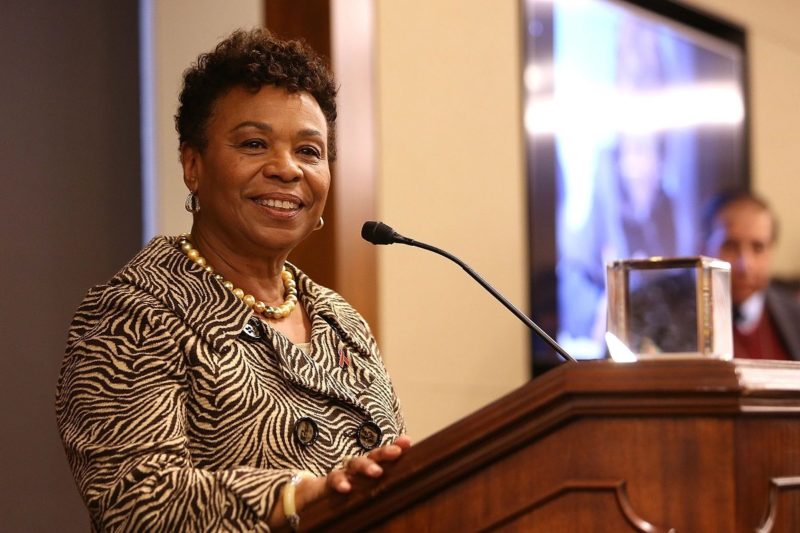House Democrats Continue Fight Against Discriminatory Anti-Choice Policy
The EACH Woman Act would permit abortion coverage under Medicaid, Medicare, and other health-care plans obtained through the federal government.

Reproductive justice advocates in the U.S. House of Representatives on Tuesday reintroduced their signature legislation to strike the Hyde Amendment, a disproportionate barrier to abortion care for people with low incomes and people of color.
More than 100 Democrats in the House have pledged to back the Equal Access to Abortion Coverage in Health Insurance Act, or EACH Woman Act.
Rep. Barbara Lee (D-CA), one of the lead sponsors of the bill, told Rewire this month that the bill would be part of the “good trouble” that advocates have promised in 2017. Reintroduction of the EACH Woman Act signals that proactive efforts to protect reproductive rights will continue despite GOP control of both the House and U.S. Senate as well as the avowedly anti-choice Trump administration.
Lee joined Rep. Jan Schakowsky (IL) and House Pro-Choice Caucus co-chairs Diana DeGette (CO) and Louise Slaughter (NY), all Democrats, in announcing the reintroduction on a press call Tuesday with the reproductive justice group All* Above All.
The EACH Woman Act would permit abortion coverage under Medicaid, Medicare, and other health-care plans obtained through the federal government. The legislation protects private insurance companies that cover abortion care from political interference at the federal, state, and local levels, according to an All* Above All fact sheet.
The inaugural version that Lee and her colleagues introduced in the 114th Congress eventually drew the support of more than two-thirds of the House Democratic Caucus. Lee said she expects even more Democrats to sign on to the EACH Woman Act this time around and didn’t rule out GOP support, even though House Republicans recently pushed through their biennial effort to codify the Hyde Amendment.
“I think you’re going to see momentum picking up,” Lee said. “After the great success of the women’s marches all across the country, Republicans are going to begin to feel the heat and begin to really understand that it’s their constituents also who need equal access to the full range of reproductive health-care services, including abortion.”
The Hyde Amendment’s restriction on federal funding for most abortion care leaves many pregnant people with low incomes struggling to afford out-of-pocket costs. Onerous state-level restrictions further complicate access to care.
“Time and again we have seen policies pushed to control the ability of women of color to make their own reproductive health decisions from when to become pregnant and raise children to dealing with obstacles to seeking abortion,” said Monica Simpson, executive director of SisterSong, a reproductive rights organization. “It is clear that there is a political agenda to deny the autonomy of women of color.”
The National Abortion Federation’s hotline “receives nearly 5,000 calls each week, many from women who are desperate to make the best decisions for themselves and their families, but frequently cannot—because of law, because of circumstances, and because of the decisions of politicians who think they know better,” the organization said in a statement. “Many of these women are forced to delay accessing the abortion care they need due to existing funding bans.”
